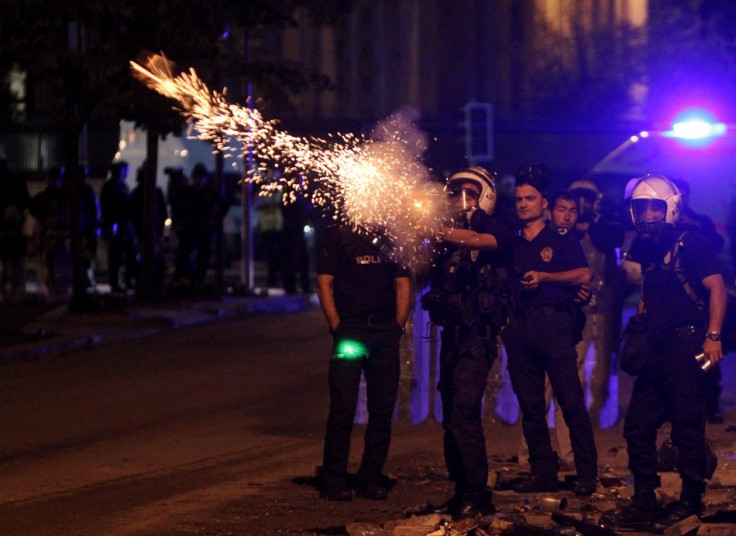Turkey Protests: Terror Squads Lead Government Crackdown on Protesters and Social Media

Turkish authorities have intensified the crackdown on anti-government protesters by detaining dozens of people in several cities across the country.
In the capital Ankara, 25 people have been detained by police and "many" more in Istanbul, according to the state-run Anatolian Agency.
The Istanbul raids were conducted by anti-terror security teams and after the health checks, the detainees were sent to the police department in Vatan street, according to the Hurriyet newspaper.
Twenty two protesters were accused of "organising violent protests and calling on people to attend illegal demonstrations" and will be interrogated for four days.
The house raids came after the Turkish government announced new plans for regulations on social media.
Turkey's interior minister Muammar Guler said that "those who manipulate public opinion and guide demonstrations on Twitter and Facebook will be revealed".
The justice ministry has started working on draft legislation crimes relating to the internet, according to ministry sources. "Of course, we think there should be a new legal regulation," said Guler
In the western city of Izmir, 24 people were detained on 5 June for inciting riots and spreading propaganda on Twitter. They were later released.
The arrests followed remarks by Turkey's Prime Minister Recep Tayyip Erdogan, who labelled Twitter "a menace".
"The best of examples of lies can be found there [Twitter]," he said. "Social media is the worst menace to society."
Twitter use during the Turkish unrest has soared as the protests mushroomed from a local, peaceful demonstration against the redevelopment of Gezi Park, a rare green public space in central Taksim Square, to a widespread uprising against the perceived authoritarianism and perceived Islamist agenda of Erdogan.
At least two million tweets on the demonstrations were sent between 4pm and midnight in just one day of unrest, according to a study by New York University's Social Media and Political Participation Laboratory. Social media usage in Turkey is very high; indeed the study shows that around 90% of the tweets about the uprising are originating inside the country.
The study described the Turks' Twitter use in response to the protests as "phenomenal" and "unique", especially in comparison with other revolts. During the Egyptian revolution, only 30% of the tweets actually originated from the country.
© Copyright IBTimes 2025. All rights reserved.





















